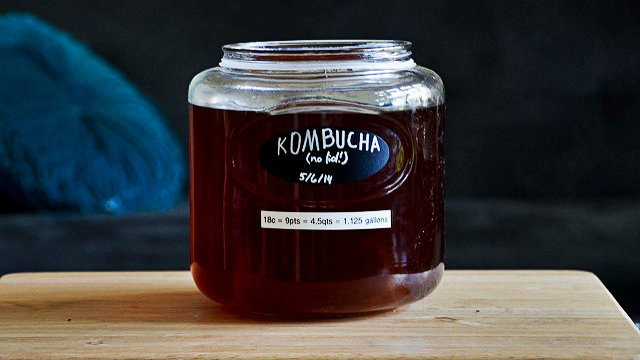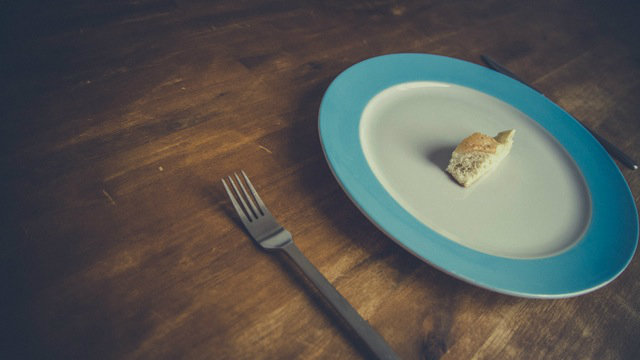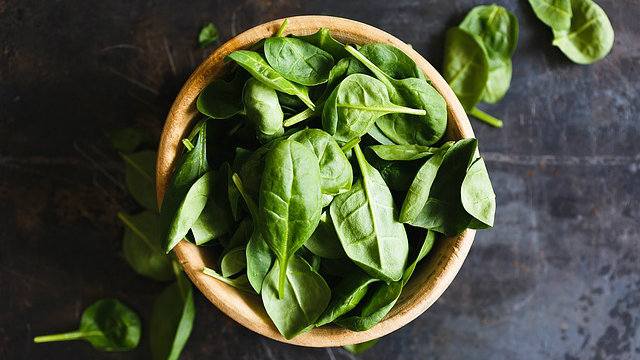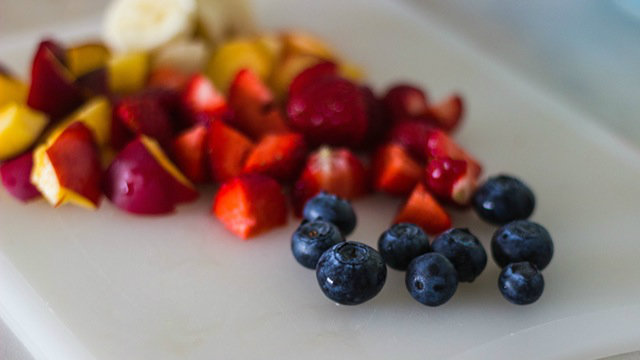 Reading Time: 6 minutes
Reading Time: 6 minutesI’ve gotten sucked into my fair share of extreme diets over the years. I always start off all-in, preparing meager portions of chicken breasts and steamed broccoli for the week on Sunday night thinking, “This is it! Perfect eating from here on out! Can’t wait for the new me!”
Then reality would set in.
I’d follow the diet perfectly for a week, but boredom and hunger would always cause the wheels to come off after about two weeks of this routine. I’d feel frustrated and ashamed I couldn’t stick to the diet, and I’d gain back any weight I lost when I started eating normally.
Extreme makeovers are appealing. We love the idea of big changes and dramatic results, but as a study on Biggest Loser contestants revealed, sudden, drastic weight achieved by a super low-calorie diet wreaks havoc on our bodies, making it close to impossible to keep the weight off.
Your body doesn’t care how you eat for one or two weeks. Our bodies are constantly searching for homeostasis, and two weeks of extreme-super-clean eating means nothing a year from now. The only way to make a real, sustained difference in your health is to make changes you can live with for years, not weeks or even months.
Before you embark on a new lifestyle change, it’s worthwhile to ask yourself: can I see myself doing this in a month? Six months? A year? Sometimes you might not know the answer to that question right away, but it’s important to keep it in mind as you’re tweaking your nutrition, exercise, and other lifestyle habits. When in doubt, start small and build from there.
Here are examples of tweaks I’ve made that I’ve maintained for years — and one bad habit I just can’t quit.
1. No Alcohol During Sunday Through Thursday
Life is stressful. I’m a working mom with two kids and sometimes it takes all my will and perseverance to make it to dinnertime. I used to celebrate the end of the day with a beer or a glass of wine. Then one day, I pictured a year’s worth of these drinks lined up, stretching into the distance. That’s when I realized the drink didn’t do all that much to make me feel relaxed, but it was having a negative impact on my health.
So a few years ago I made a rule: no alcohol Sunday through Thursday. Instead of marking the end of the day with an alcoholic drink, I pour myself a glass of sparkling water or some homemade kombucha. This new routine — the hiss of the carbonation, watching the bubbles rise in the glass—is just as relaxing as pouring a beer. A big part of the allure of the nighttime drink was the ritual, not the alcohol. What’s more, by the time Friday rolls around, I really appreciate that drink.
 Photo (CC BY-ND 2.0) by iriskh.
Photo (CC BY-ND 2.0) by iriskh.
If I have any sort of social occasion during the week, which is very rare, I’ll make an exception to this rule, and of course all rules go out the window during vacation. Sticking to this rule over the years has been easy. I never feel deprived, and the result is very low alcoholic intake over the course of a year.
2. Salad Almost Every Night
This is a rule I’ve been following almost my entire life, thanks to my mom. Growing up, almost every single dinner included a green salad: lettuce, a few seasonal vegetables, and a homemade dressing of olive oil, balsamic vinegar, Dijon mustard, a smashed garlic clove, and salt and pepper.
This is a habit so deeply ingrained into my cortex — or wherever it is that habits reside — that I produce a salad almost every night without even thinking about it. Lettuce in a bowl, a mix of whatever vegetables we have lying around (or fruits, I love oranges in a salad), and a splash of homemade dressing. It takes less than five minutes to prepare, and the benefits of this habit are many.
The best result is now my kids eat salad. When they were younger, they’d mostly ignore the salad or pick out the tomatoes. Slowly, as the years progressed, they started eating the lettuce. Now most nights they request salad and eat it happily. We all get an extra serving of vegetables every night, which is good for all of us. Finally, filling up on greens means we all eat smaller portions of the rest of our meal. Feeling a bit hungry after cleaning your plate? How about more salad?
3. Don’t Exercise, Learn a Skill
I can pinpoint the exact moment I began seeing exercise as an enjoyable pastime instead of a chore: the minute I walked into a boxing gym for the first time.
I had finally found a sport I loved, something difficult but exhilarating that lit up my brain as I tried to get better, faster, stronger. My workout goals shifted from losing weight to becoming a better boxer. After going further in the sport than I ever imagined — I ended up at nationals in 2003 — I hung up my gloves. I decided getting punched in the head repeatedly was probably not a great lifetime habit, and that’s when I discovered CrossFit. A whole world of new skills to learn opened up. For the first time in my life I was learning gymnastics and weightlifting, climbing a rope and jumping on boxes. Going to the gym is a treat I scheme to fit into my day, not something I have to force myself to check off the list.
CrossFit and boxing are certainly not for everyone, but if you’re having trouble finding motivation to exercise, try something that involves skill. It could be ballet, tennis, or yoga. A pole-dancing studio just opened in my neighborhood — you never know!
The 1 Habit I Just Can’t Quit: The After-Dinner Snack
Eating after dinner is a habit I have not been able to break for any long stretch of time. I go through periods where I vow I’ll not eat anything after dinner, but then, eventually, I revert to my old habits. I really enjoy a little something in that time after dinner and before bedtime.
Realizing I am probably never going to break this habit, I’ve reached a compromise. My nighttime snack is not ice cream or sugary cereal. More often than not, I’m satisfied with a bowl of cottage cheese, sometimes with a bit of fruit or a few nuts. Some nights it’s a few squares of dark chocolate with 85 percent cacao—the lowest sugar dark chocolate I can find.
In this case, my goal has shifted from “no eating after dinner,” which I find very difficult to sustain to “a small, healthy snack after dinner.”
Sometimes A Bad Habit Just Needs a Small Change
When evaluating your habits, look for those that are easy to give up. Drinks are a great place to start, because sugary and alcoholic drinks are a source of empty calories you likely won’t miss when they are gone. Can’t live without your late-afternoon snack? Make sure it’s something healthy and nourishing. When I worked an office, I made it a rule to never eat the treats lying around the break room. If those are source of temptation, make sure you have a healthy alternative.
Just remember, for a change to have a lasting effect, it has to be one you can sustain for months and years, not days or weeks.









